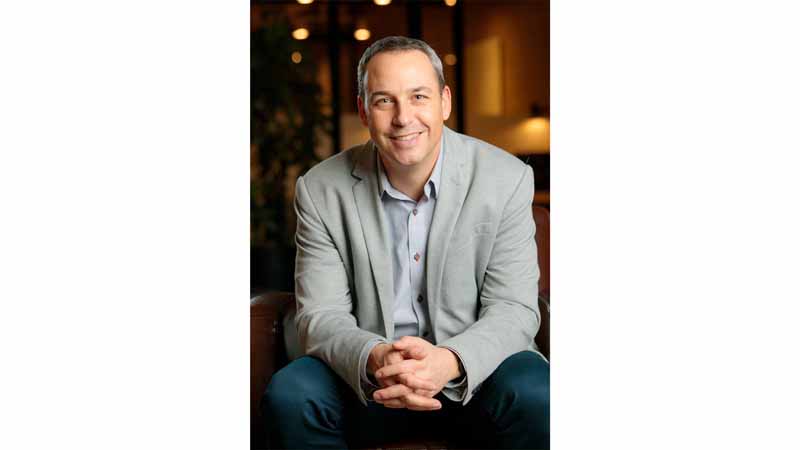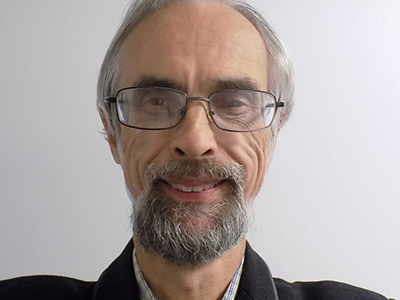Mark Frank's SonderMind Enables Access to Mental Healthcare for a Sounder Mind
When former Army veteran and lifelong entrepreneur Mark Frank got the first outside funding for SonderMind Inc. in April 2018, neither he nor the investors knew that it would truly be an idea whose time had come when the pandemic hit.

The Denver-based company enables better access to mental and behavioral healthcare by matching individuals with a therapist who meets their mental health needs and insurance coverage while also managing therapists' relationship with the insurer, with an eye for quality clinical outcomes. Insurance networks are big headaches for therapists of all kinds, who are often sole practitioners and can be discouraged by the complicated reimbursement process. In 2014, a survey by the Journal of the American Medical Association found that just 55% of psychiatrists were willing to accept insurance and reports that the numbers have declined since then.
Mental Health America estimated in October 2020 that 19% of Americans (47.1 million) were living with a mental health condition, ranging from severe anxiety to suicidal depression, a 3% increase (1.5 million) over the prior year. About 8% were struggling with substance abuse, and the Centers for Disease Control reported that for the 12 months ending last May, more than 81,000 died from a drug overdose, the highest ever recorded for a 12-month period. Surveys lag reality, but clearly, there is an escalating crisis for many, and for the rest, there are issues that hold them back from leading optimum lives, such as excessive anger and feelings of inadequacy.
As much as the rising demand is due to the increase in isolation, illness, and economic troubles, it is SonderMind's ability to deliver customized help even remotely that has been a major driver of its success.
"Our hybrid model of behavioral therapy includes live video, chat, texting, phone, or meeting in-person, which makes it easy to adapt to anyone's schedule, circumstances, or preferences," Frank told Startup Savant. "We also have a very sophisticated matching system so that individuals can find the right therapist, counselor, social worker, or whatever they need. SonderMind is now operating in five states and expanding to many more over the next two years when we expect to cement our leadership in this space nationally."
Preparation for the Mission
Frank was born in Atlanta, where his father, who was used to moving around from having served in the army, was based as a long-time IBM employee. When Frank was six, they transferred to Tokyo, returned to the same home in Atlanta when he was nine, moved to Germany when he was 11, and returned before he turned 14. Wherever he was in Atlanta, he mowed lawns, babysat, sold cookbooks, worked at Jiffy Lube, or had other gigs, developing the habits of hustling, hard work, and juggling multiple tasks.
"All of those international experiences broadened my understanding of other cultures, informed my view of life, and contributed to my entrepreneurial outlook on opportunities," he said.
He entered West Point in 1996 and received a B.S. in computer science when he graduated in 2000, then was stationed at Fort Carson in Colorado Springs with the 3rd Brigade, 4th Infantry Division. In 2003, he was deployed for Operation Iraqi Freedom as a company second-in-command and led platoons that varied from having 20 to 35 soldiers over two-and-a-half years, with tasks that included logistics, transportation, and maintenance.
"I was fortunate to have that much hands-on leadership experience," Frank said. "I also had an inspiring mentor in my battalion commander, Gustav Perna, now the four-star general who is the COO of Operation Warp Speed in charge of COVID vaccine development and distribution. All those varied responsibilities were great training for leading a fast-growing business."
He was promoted to C in the middle of his year in Iraq, then returned to Colorado Springs and joined the 7th Infantry Division. Tapped to be deputy director of strategic planning, he spent a year developing a five-year plan for Fort Carson, which expanded his ability to think about the bigger picture of operations.
He left active duty in 2005 to earn an MBA and Master's in Engineering Management at Northwestern University during the next two years. He went to work as an investment banker at Morgan Stanley specializing in healthcare but longed to lead an organization, while his family wanted to return to Colorado.
The Parallel Entrepreneur
Both opportunities came with an invitation from an investor there who wanted to start freestanding radiation clinics offering a more precise treatment for cancers.
"I had this view of healthcare at Morgan Stanley at 30,000 feet, but this got me not just into the weeds, but the mud, as I had to deal with all the complexities of how to get contracts, do insurance billing, marketing directly to patients, engage with physicians to get referrals, and so forth," Frank said.
They eventually sold the company, and it would turn out to be critical training for SonderMind's challenges. But Frank hasn't been the proverbial serial entrepreneur, starting one new business after another; he was "a parallel entrepreneur, exercising my 'professional ADD' ideating on more than one project at once," he laughed. In 2011, he had also co-founded with a former employee a platform for storing and sharing medical imaging data, which they sold in 2016.
In 2013, he had also co-founded with three others a company that developed a program with machine learning that would search data from an enormous variety of sources to find high-quality sales leads for the commercial real estate and telecom industries. He left to form SonderMind.
The roots for it go back to Frank's Army experience, with friends later suffering from severe post-traumatic stress syndrome (PTSD). His sister is also a licensed therapist, and a cousin is a clinical psychologist, so he was familiar with possible ways to treat it and other mental and behavioral health issues.
In 2013, he and prominent licensed counselor Sean Boyd began discussing ways to make therapy more accessible for patients and easier for private practitioners to deal with the business challenges, including the hurdles in getting paid by insurance companies and finding affordable office space in a convenient location for patients. They formed SonderMind in 2014 and in 2017, spun off the real estate part as Humanly, headed by Boyd.
"Sonder" has roots in words referring to "probing" and "inquiring," Frank explained, and they wanted to avoid the baggage of stigma that came with a name that included terms like psychology, therapy, or mental health.
Democratizing Mental Healthcare
"We didn't initially want to raise outside money, and in the first couple of years, we were mostly self-funded," he said. "Entrepreneurs always want to retain as much ownership as possible, but constantly having to raise small amounts is very distracting and makes it difficult to grow a business fast. We also gradually realized that outsiders can provide invaluable advice and connections. By April 2018, we had had several months of strong growth and proof that our model could be scaled to meet enormous demand, so we brought in venture capital."
A Series B round of $27 million was closed in April 2020, led by San Francisco's General Catalyst, a month after some states had gone into the COVID-19 lockdown. No one could imagine the variety, depth, and length of the traumas that the pandemic and its side-effects would inflict.
Drawing on all his prior experiences, Frank and his small team built out the technology platform that allowed patients to understand the ways that different therapies could help them reach their emotional wellness goals. They enticed behavioral health practitioners to join the network by not only taking on the burden of the claims process but paying therapists shortly after their sessions, with SonderMind waiting for reimbursement. And it gives providers the tools and training to make it easier to adapt to the hybrid approach to treatment.
Growth rose rapidly as they expanded coverage to include Cigna, Anthem Blue Cross and Blue Shield, United Healthcare, Kaiser Permanente, and Aetna. Last year, it added access for veterans and Medicare Advantage members, though ironically, the largest insurance company in Colorado has refused to accept mental healthcare as something worth covering. SonderMind now has over 1,500 counselors in its network, specializing in everything from treating first responders to helping mothers with postpartum depression, and it has expanded to Ohio, Texas, Missouri, and Arizona.
Psychotherapy has been mainstreamed with bestsellers like “Getting the Love You Want” by Harville Hendrix (Oprah Winfrey's favorite relationship counselor), the HBO TV series "The Sopranos" and "In Treatment," and advice shows such as "Dr. Phil." Hollywood has portrayed the benefit of sharing coping strategies in 12 Step meetings. SonderMind helps anyone with questions or an interest in therapy with blogs about the approaches, the potential benefits, how to tell if one is making progress, and tips on choosing a counselor who will be the right fit.
"The progress we've made as a society in recognizing the need for mental and behavioral healthcare in the past four years is immense because everyone knows someone who needs serious help, especially since the pandemic started," said Frank. "There is a ton of research that addressing these issues up front can dramatically save downstream costs for physical health. You can help people to stop overeating and consuming lots of junk food or to quit smoking as ways of coping with their feelings, reducing the risk of diabetes, heart disease, and cancer.
“This new attitude of acceptance in business has been driven by the recognition of leaders that helping employees deal with everything from extreme anxiety to excessive drinking can reduce turnover and increase productivity while significantly reducing the cost of medical insurance. And they've shared stories of their own experiences and those of family and friends who have benefited from treatment. Asking for help has largely been destigmatized."
About the Author

Scott S. Smith has had over 2,000 articles and interviews published in nearly 200 media, including Los Angeles Magazine, American Airlines’ American Way, and Investor’s Business Daily. His interview subjects have included Bill Gates, Richard Branson, Meg Whitman, Reed Hastings, Howard Schultz, Larry Ellison, Kathy Ireland, and Quincy Jones.
Startup Resources
- Learn more about Startups
- Visit the TRUiC Business Name Generator
- Check out the TRUiC Logo Maker
- Read our Business Formation Services Review
- Find Startup Ideas
- Explore Business Resources
Form Your Startup
Ready to formally establish your startup? Click below to read our review of the best business formation services!
Best Business Formation Services